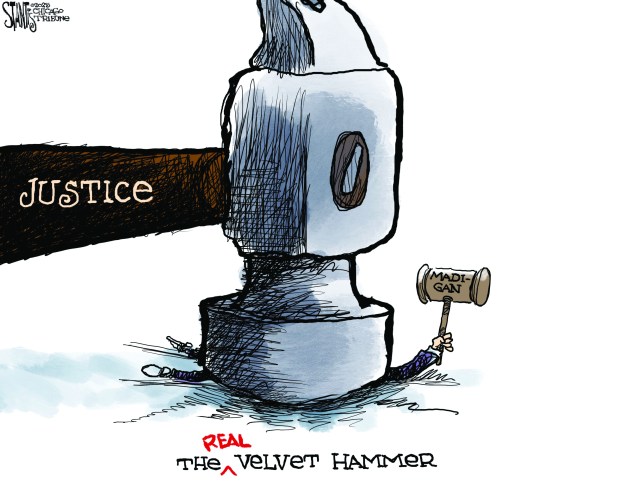The Democratic National Committee’s ultimatum to activist and vice chair David Hogg — demanding neutrality from party officers during primary elections — highlights the risks of enforcing political conformity. Hogg, 25, recently unveiled a strategy to spend big on primaries against “ineffective, asleep at the wheel” Democrats, taking the unusual step of targeting fellow Democrats instead of Republicans.
Democrats’ response is unsurprising and logical, but it feels a lot like the old workplace cliché, “that’s how we’ve always done things,” typically uttered by people in comfortable positions who are uninterested in change, even if needed.
We’re not here to defend Hogg. But we do support challenging the status quo that has left many Americans disenchanted and politically homeless.
While political cohesion can offer short-term strategic advantages, demanding strict uniformity often silences fresh voices and stifles innovation. It can also dampen voter engagement — especially among younger voters and moderates who feel alienated by partisan purity tests.
A 2022 Pew survey showed that, even before the 2024 election, half of young voters wished they had more political parties to choose from. In 2023, another Pew poll found that 3 in 10 Americans were dissatisfied with both major parties.
Healthy democracies thrive on competition, discussion and respectful disagreement. When political parties become monolithic, rigidly discouraging challenges and critiques, they risk becoming out of touch, complacent and ultimately less effective. Democrats are facing that reckoning now. The party’s approval rating has been well below 40% in recent polls, unusually low marks fueled in no small part by disaffection from Democrats themselves.
This isn’t a challenge exclusive to Democrats by any means. Congressional Republicans have become shrinking violets on legislative matters, falling in line with Donald Trump’s agenda even when it conflicts fundamentally with their own long-held views. U.S. Sen. Rand Paul, a Kentucky Republican who leans libertarian, is one of the few conservative voices speaking out against his party and the president on tariffs and a budget that does too little to address the federal deficit, and he’s taking heat for it. We applaud Paul’s consistency on the issues and his willingness to stick to principle over party.
Demands for unquestioning conformity — whether from Democrats or Republicans — run counter to the spirit of our democratic republic, which champions diversity of thought and a higher allegiance to principles over party orthodoxy. This board supports a more inclusive politics that values honest debate as a cornerstone of democratic health.
Our concerns extend to state and local politics as well. For example, we view Illinois House Speaker Chris Welch’s informal rule requiring any bill getting a floor vote to be able to pass with only Democratic votes even if it would win approval on a bipartisan basis as an undemocratic restraint. It undermines what a legislature is meant to do: debate ideas on their merits no matter their provenance.
If the goal of American politics is merely to erase the other side’s advantage, we’ve lost sight of what matters most: serving the public. Our country’s founders warned that “factionalism,” embodied by political parties, could be fatal to the nascent republic’s health. More than two centuries later, we’re uncomfortably close to proving those early skeptics right.
The only time party bosses seem concerned with reconsidering their rigid positions is after they lose. That’s not enough. Americans’ growing frustration with both parties, illustrated in poll after poll, to our minds is a cry for change.
We need a system that focuses less on partisan success and top-down control and more on fostering political discourse that embraces a diversity of thought and ideas.
Submit a letter, of no more than 400 words, to the editor here or email letters@chicagotribune.com.



